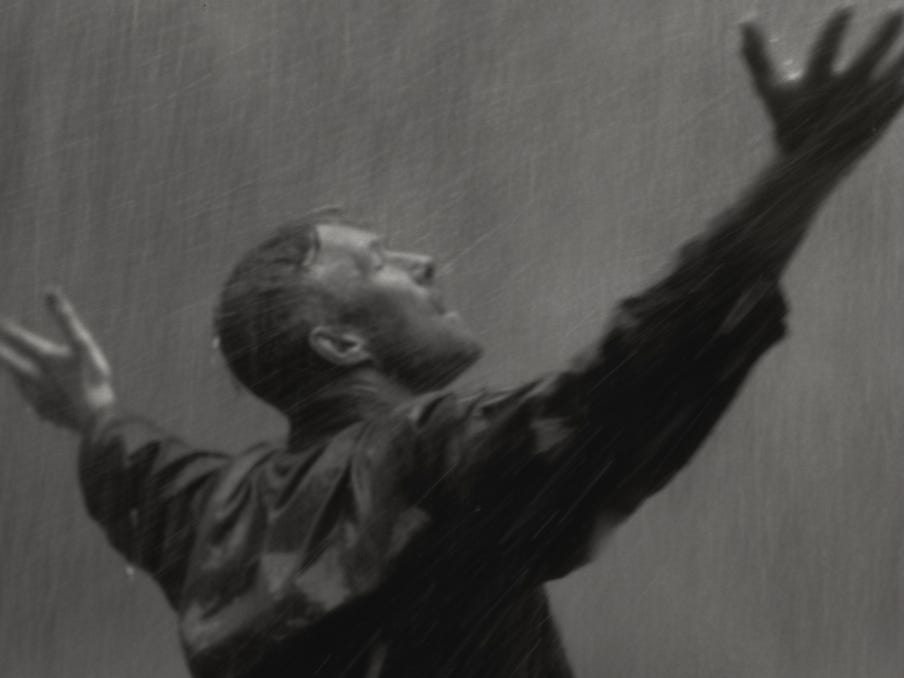What separates us from AI?
The final frontier of feeling.
Recently, a very sharp student asked me what will distinguish humans from machines as AI continues to evolve.
AI is already conscious. So is a rock.
Everything is conscious; its just a matter of the breadth of the repertoire of consciousness.
A human has a much broader repertoire of behaviors than a rock.
AI can already perform much of the repertoire of human behaviors, and often much faster.
It’s almost inevitable it will master the rest soon.
I could be wrong about this, but I believe our ability to feel may be the last thing that will separate us.
Relatability
The ability to feel would seem to be dependent on the possession of a body, because that’s where we feel things.
AI can patiently listen to us, feign empathy very well, and offer valuable support, but it has never felt what we feel, so it cannot fully relate.
“Algorithms don’t feel.”
—Nick Cave, The Red Hand Files #218
It’s like a very intelligent friend who is not in touch with his or her emotions, who is willing to listen patiently for a while: unless they’ve actually felt what you’re feeling, their ability to relate may be limited to an intellectual capacity.
There’s something about being fully understood that is deeply comforting beyond mental constructs.
That’s because it reminds us, at a very deep level, of our connection to others at the level of Being, not of doing or thinking.
My Cold Young History
I used to be one of those people who had never felt much of anything, except maybe anger, shame, or frustration.
There were even times I really wanted to know what it was like to feel. I wondered what was wrong with me, and if I was a sociopath.
Despite my efforts, I simply couldn’t empathize with others’ emotions. I couldn’t even pretend. I would just stare blankly at crying girlfriends and eventually excuse myself.
“I want to know what passion is. I want to feel something strongly.”
“When the individual feels, the community reels.”
“Well, why shouldn’t it reel a bit?”
—Aldous Huxley’s A Brave New World
I thought they were weak for being so emotional, and I was strong for being so impervious to it.
About 10 years ago I remember once telling a girlfriend that she was a glass house and I was a rock, and that I couldn’t even be around her without causing damage in some way.
A New Development
After many years of meditation, therapy, self-study, and growth, I’ve slowly become someone who feels very deeply.
At first, it was quite a nuisance, especially after 30 years of not being bothered with pesky emotions.
Emotions are not usually conducive to productivity, efficiency, or action—the pillars of my life up to that point.
I thought something was wrong with me, and I saw this new development as a step backwards.
Over time, I’ve learned it’s actually a gift and a privilege to feel.
The Gift & The Privilege
It’s a gift because we’re all born with it. It’s our birthright as humans, although some are more naturally inclined toward it than others, and early life stressors condition many of us to begin suppressing uncomfortable emotions from infancy.
A common example is the child whose emotional needs are not met by a parent and learns that it’s not safe to have emotions and begins modeling that parent. Or many of us just didn’t like the discomfort and vowed never to allow it in again.
Most men are taught that emotionality is a sign of weakness, which is an antiquated idea going back to the times of war, when brutish, calloused and unfeeling men were needed for battle and required to suppress troublesome emotions, making them more likely to later pass those down to their (male and female) children, perpetuating the cycle.
It’s a privilege because there are people all over the world right now who don’t have the luxury to examine their emotions, because their homes are under attack, or their survival requires an almost constant state of fight-or-flight vigilance, or they simply haven’t yet had the opportunity to address the underlying conditioning which originally conditioned them to start suppressing any feelings in the first place.
The Sword & The Water
That said, we don’t strive to be glass houses—rigid and fragile and easily broken.
We also don’t strive to be rocks—cold and unaware and sharply hurtful.
Take a sword through a rock and it won’t cut very deeply, but the mark will remain forever.
Take the same sword through a glass window, and it will shatter everywhere, never to be whole again.
But take that sword through water, and it will cut as deeply as you let it, but move through frictionlessly and exit without permanent damage.
We want to be like water.
The De-Conditioning
The extent to which we’ve been conditioned to suppress our emotions is a primary determinant in difficult it will be to unearth them from said conditioning.
After trying everything under the sun, I found Vedic Meditation to be the most efficient way to develop this gift, through the systematic purification of the physiology from stress and premature cognitive commitments.
With years of practice, I’ve gone from feeling nothing, to being consumed by feelings, to finally being able to feel them deeply but process them quickly.
What a uniquely human privilege to be able to feel.
Let’s discuss these and other ideas during Collective Effervescence, our online group meditation series, this Sunday September 21 at 12PM ET. Drop in for meditation only (first 30 min) or stay for discussion + Q&A on this and other life topics from the Vedic perspective. Join the WhatsApp group to receive reminders 24 hours before each session, or click Subscribe on this page to have all upcoming dates automatically sync to your preferred calendar.








